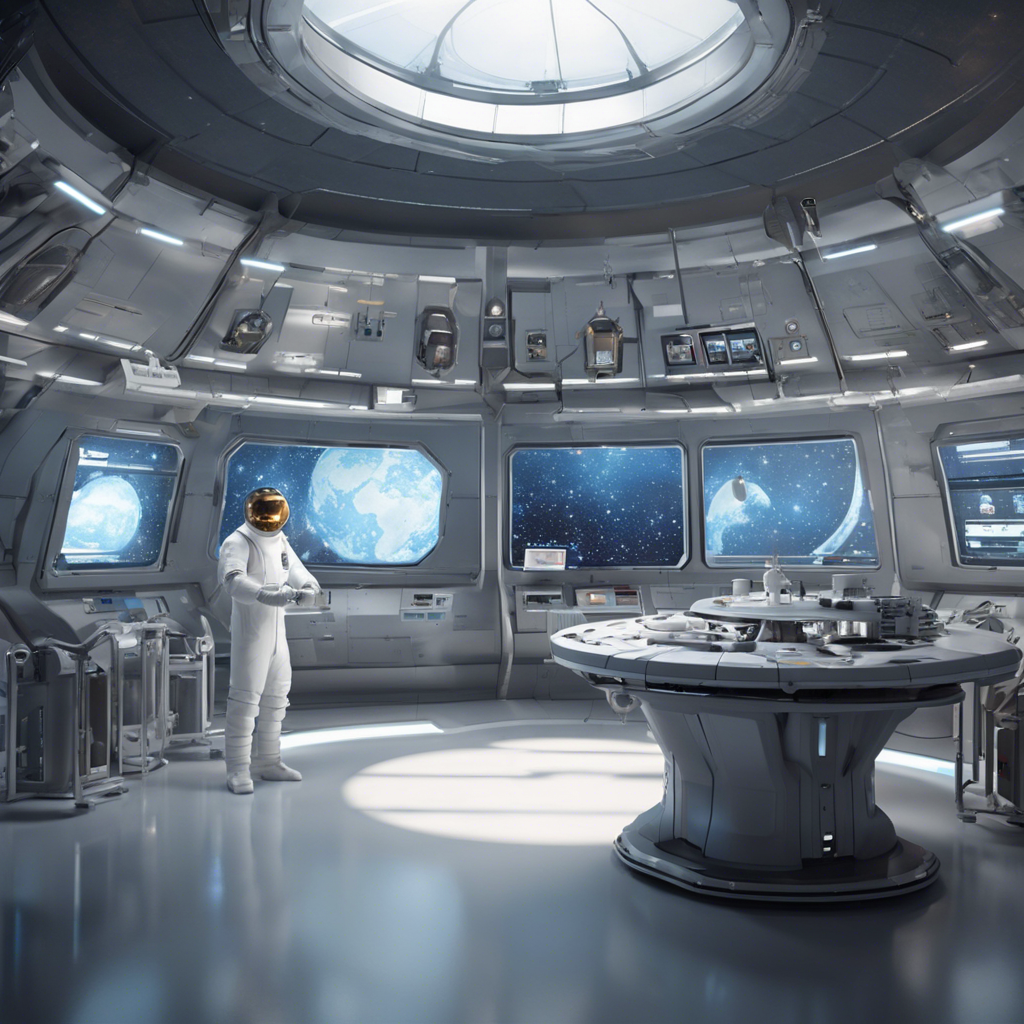AI Enhances Autonomy and Data Collection for NASA Spacecraft

SAN FRANCISCO – Artificial intelligence is set to enhance the resilience and data-gathering capabilities of spacecraft, enabling them to operate with greater autonomy without relying on ground controllers for instructions. Evana Gizzi, the AI research lead at NASA’s Goddard Space Flight Center, remarked to SpaceNews, “Our previous methods have imposed limitations. There’s so much more we aspire to achieve. ” The implementation of distributed missions, where spacecraft collaborate with landers and rovers, necessitates autonomous functionalities. AI also facilitates versatile mission architectures, allowing new spacecraft and sensors to integrate into existing on-orbit swarms. “At NASA, and across the aerospace sector, mission concepts are increasingly intricate, meaning many cannot be executed without AI, ” said Gizzi, who holds a PhD in artificial intelligence from Tufts University. **Measuring Methane** However, the adoption of AI in NASA missions presents challenges. Space mission planners are typically risk-averse and cautious regarding the use of untested algorithms. To ease the integration of AI into spacecraft operations, the NASA Goddard Space Autonomy and Resilience (SPAR) lab developed the Onboard Artificial Intelligence Research platform, known as OnAIR. This platform is an open-source software pipeline and cognitive architecture tool, which is accessible on GitHub, a popular software developer platform. A prototype of OnAIR was utilized in NASA’s NAMASTE mission, which employed a fleet of autonomous drones to assess methane distribution in Alaskan permafrost regions. (NAMASTE stands for Network for Assessment of Methane Activity in Space and Terrestrial Environments. ) “OnAIR enabled the drones to optimize data collection in scientifically significant areas by establishing a standard for data ingestion and processing in the NAMASTE software architecture, including autonomous measurements made by the Multifunctional Nanosensor Platform instrument integrated into the drones, ” explained Mahmooda Sultana, an instrument scientist at the NASA Goddard Planetary Environments Laboratory, who has a PhD in chemical engineering from MIT. **Testing on the ISS** OnAIR was additionally tested through the SpaceCube Edge-Node Intelligent Collaboration, or SCENIC.
SpaceCube consists of a range of reconfigurable processors made from commercial-off-the-shelf and radiation-hardened parts. In 2023, a SpaceCube was attached to the exterior of the International Space Station. Following the completion of its primary objectives, including showcasing the performance of commercial field-programmable gate arrays in space, the SPAR Lab faced several obstacles but ultimately succeeded in demonstrating OnAIR. “We initially anticipated a full year to prepare and upload OnAIR to SCENIC. However, about two months into the process, we learned SCENIC would be shut down sooner than we expected, ” stated James Marshall, a NASA Goddard Science Data Processing branch software engineer with a PhD in computer science from George Washington University. Consequently, he and his team had to condense a year-long project into six months. They also had to adapt to SCENIC’s slower main processor. “The clock speed was 100 [megahertz], and its architecture was less common, complicating the porting of the necessary Python libraries and resulting in lower performance, ” Marshall noted. Integrating OnAIR with SCENIC’s existing core flight system presented another challenge, which the researchers overcame by leveraging their prior project experience. “Our entire team (just the three of us) had previously developed software for SCENIC, allowing us to test everything on the SCENIC FlatSat and smoothly integrate the code, ” Marshall concluded.
Brief news summary
At NASA's Goddard Space Flight Center, artificial intelligence (AI) is transforming spacecraft autonomy, allowing them to gather data independently from ground control. Lead researcher Evana Gizzi highlights that traditional multi-spacecraft operations are complex, necessitating the use of AI. However, incorporating AI into missions poses challenges, particularly due to planners' reluctance to adopt unproven algorithms. To tackle this, NASA created the Onboard Artificial Intelligence Research (OnAIR) platform, an open-source tool available on GitHub. OnAIR proved its capabilities during the NAMASTE mission, where it enabled drones to autonomously track methane emissions in Alaskan permafrost, enhancing data collection efforts. Building on this success, OnAIR has also been tested aboard the International Space Station under the SpaceCube Edge-Node Intelligent Collaboration (SCENIC) initiative. Despite challenges like limited processing power and stringent timelines, the successful integration of OnAIR underscores the crucial role of AI in propelling space exploration forward.
AI-powered Lead Generation in Social Media
and Search Engines
Let AI take control and automatically generate leads for you!

I'm your Content Manager, ready to handle your first test assignment
Learn how AI can help your business.
Let’s talk!

Justin Sun's Tron to Go Public via Reverse Merger
Justin Sun, founder of the $26 billion Tron blockchain ecosystem, announced plans to take Tron public via a reverse merger with Nasdaq-listed SRM Entertainment, marking a pivotal step in Tron's growth and visibility in financial and tech sectors.

Top Trump Labor Official: America's Workers Don't…
Keith Sonderling, former deputy Labor Secretary under the Trump administration, recently highlighted a major barrier to AI adoption in the U.S. workforce: employee mistrust.

Avail Goes Full Stack To Capture $300 Billion Glo…
June 17, 2025 – Dubai, United Arab Emirates Avail presents the only blockchain stack that delivers horizontal scalability, crosschain connectivity, and unified liquidity while preserving decentralization

Microsoft and OpenAI Engage in Complex Negotiatio…
Microsoft and OpenAI are currently engaged in a complex and tense negotiation process that could significantly reshape their strategic partnership and affect the broader artificial intelligence industry.

Crypto group Tron to go public in US via reverse-…
Hong Kong-based cryptocurrency entrepreneur Justin Sun’s blockchain company, Tron, is preparing to go public in the United States through a reverse merger with SRM Entertainment (SRM.O).

OpenAI Secures $200 Million U.S. Defense Contract
OpenAI has secured a $200 million contract from the U.S. Department of Defense, marking a major milestone in AI collaboration with federal defense.

AI Experts Discuss Potential Existential Risks of…
The rapid progress of artificial intelligence (AI) has generated significant debate and concern among experts, especially regarding its long-term effects on humanity.

 Auto-Filling SEO Website as a Gift
Auto-Filling SEO Website as a Gift








 Auto-Filling SEO Website as a Gift
Auto-Filling SEO Website as a Gift

